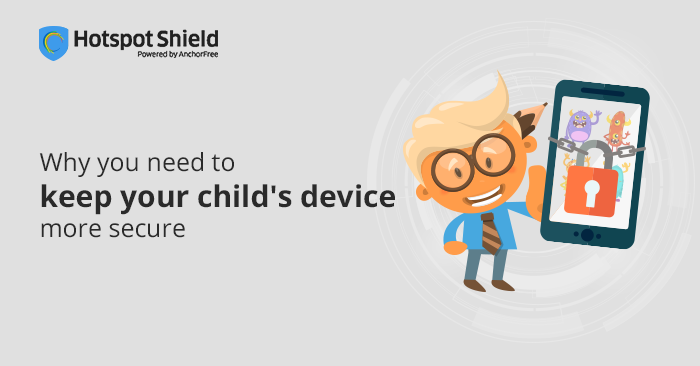How to get a Finnish IP address
The easiest way to improve your digital privacy is to switch your IP address using a VPN. We’ll …

Most children today have access to the Internet, with many of them having their own devices. According to a 2015 study published in the journal Pediatrics which involved 350 children from the US, 97 percent have access to the Internet via smartphones and tablets, 20 percent of children below 2 years of age also have their own devices, and almost one-third in this age group could navigate mobile devices without the help of parents and guardians.
For the average age for smartphone and tablet ownership in children, consumer behavior research firm Influence Central reported in a 2016 publication, titled Kids & Tech: The Evolution of Today’s Digital Natives, that the average age for a child getting their first device is at 10.3 years old.
The same publication also revealed that tablets and smartphones are among the most common devices that children use for entertainment on the go, with tablet usage rising from 26 percent in 2012 to 55 percent in 2016, and smartphones increasing in use to 45 percent, up from 39 in 2012.
In terms of how parents manage the Internet usage of their children, many households have no rules that control what type of and how much content is consumed. A study from US-based safe technology advocate Common Sense Media revealed that only 27 percent of parents fully enforce rules that limit the amount and type of content that their children consume.
The continuous dip of the average age of Internet use for children is alarming security-wise. Because users are getting younger, it’s also becoming easier for cyber criminals to execute their malicious activities.
Most children do not have the same level of judgment that adults have, which means that they won’t be able to tell what they can and should not click. They won’t be able to know the difference between a legitimate website and a spoof website, for instance, making them vulnerable to online phishing scams. They are easier to trick into clicking a link on social media, making them susceptible to malware attacks on infected sites. They could even compromise nearby devices just by clicking on malvertisements.
These are a few of the reasons why parents and guardians need to make the devices that children use for Internet surfing more secure.
Hotspot Shield makes devices safer for children when surfing the Internet, but this is only one among its numerous features. With Hotspot Shield, you’ll also be able to access restricted content, surf the web anonymously, and protect your device from snoopers using advanced encryption, among other benefits. Learn more about them by visiting the Hotspot Shield website.
Make your child’s device safer by downloading the best Internet security VPN today! For more tips on online privacy, safety and anonymity, don’t forget to read our other blog posts.
